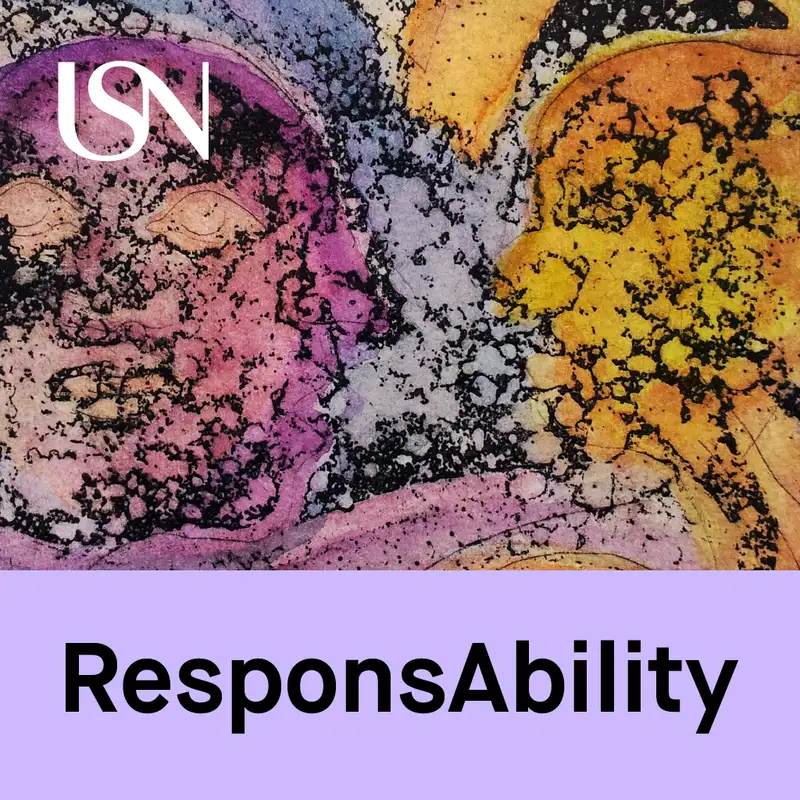#13 Monika Ardelt | How can you measure wisdom?
TRANSCRIPT SUMMARY
(This transcript summary was AI-generated and then edited by the podcast hosts for quality assurance)
# 13 MONIKA ARDELT | HOW CAN YOU MEASURE WISDOM?
- a podcast dialogue with Michael Noah Weiss and Guro Hansen Helskog
INTRODUCTION
In this episode, sociologist and wisdom researcher Monika Ardelt joins hosts Michael Noah Weiss and Guro Hansen Helskog to discuss the meaning, measurement, and cultivation of wisdom. Ardelt, known for developing the widely used Three-Dimensional Wisdom Scale, shares her personal and academic journey into wisdom studies and reflects on how wisdom relates to aging, well-being, responsibility, and spirituality.
DISCOVERING WISDOM AS A KEY TO WELL-BEING
Ardelt's interest in wisdom began during her doctoral work, where she noticed that traditional factors like health and income didn't fully explain well-being in older adults. Guided by intuition and inspired by earlier thinkers like Clayton and Birren, she turned to wisdom as a possible missing element. Drawing from their framework, she eventually identified three core components of wisdom: cognitive, reflective, and what she reframed as compassionate (instead of affective).
Using qualitative data from a long-term study that began in 1929, Ardelt analyzed interview content to identify expressions of wisdom, laying the groundwork for her own measurement tool.
CREATING THE THREE-DIMENSIONAL WISDOM SCALE
Encouraged by colleagues, Ardelt developed a self-report scale to measure wisdom. Working with students, she curated over 100 potential survey items, eventually narrowing them down to 39 that reliably captured the three dimensions. The scale performed well in Western cultures but encountered difficulties in countries like India and China, where reverse-coded items and disagreement-based scoring clashed with cultural norms.
Despite these challenges, Ardelt maintains that wisdom is a universal human capacity. Across cultures, people describe wise individuals in strikingly similar ways, often highlighting knowledge, reflection, and compassion. The problem lies not with the idea of wisdom, she argues, but with how it's measured.
THE THREE DIMENSIONS OF WISDOM
Ardelt offers clear descriptions of the three key dimensions in her model:
Cognitive: Insight into the deeper meaning of life, tolerance for uncertainty, and self-knowledge.
Reflective: The ability to view oneself and events from multiple perspectives, enabling self-awareness and empathy.
Compassionate: Sympathy and concern for others, emerging naturally from understanding and reflection.
Wisdom, in this model, is not abstract or academic-it is lived and embodied, expressed in how one responds to life's complexities.
MEANING-MAKING AND LEARNING FROM EXPERIENCE
Ardelt aligns with Viktor Frankl's view that meaning-making is essential to human life, placing it within the cognitive dimension of wisdom. However, she emphasizes that such insight arises through reflection-particularly the capacity to examine one's own biases and experiences, including painful ones. For Ardelt, wisdom grows through life's trials, not just through intellectual understanding.
WISDOM ACROSS THE LIFESPAN
Research shows that wisdom typically increases through young adulthood and midlife, but may decline in very old age due to health issues or a reduced sense of control. However, this isn't inevitable. Older adults who continue to reflect and learn often maintain or even deepen their wisdom. Ardelt also stresses that young people can be wise-especially if they've experienced hardship and engaged deeply with it.
CAN WISDOM BE TAUGHT?
Ardelt firmly believes wisdom can be nurtured. At the University of Florida, she teaches a course called The Quest for Wisdom and Human Flourishing, where students engage in philosophical practices, compassion exercises, journaling, and class reflection. Students often show measurable growth on wisdom scales-but more importantly, their own reflections suggest deeper insight and personal development.
Interestingly, as students grow wiser, they may rate themselves more humbly, which can paradoxically lower their scores. This points to the limitations of self-report measures and the need for both qualitative and quantitative tools in wisdom research.
SPIRITUALITY AND WISDOM
The connection between wisdom and spirituality is nuanced. Ardelt prefers not to include spirituality as a formal component of wisdom, aiming to keep the concept inclusive of secular and non-religious individuals. Still, she acknowledges that many wise people are spiritual and that spiritual traditions-at their best-aim to cultivate inner transformation.
She distinguishes between intrinsic religiosity (living by spiritual values) and extrinsic religiosity (using religion for social or personal gain), noting that only the former aligns with wisdom. Her data shows no strong correlation between wisdom and general religiosity, but a negative correlation with extrinsic religious orientation.
WISDOM, RESPONSIBILITY, AND RESILIENCE
Tying the conversation back to the podcast's theme, Ardelt explores the link between wisdom and responsibility. She notes that wise individuals tend to exhibit resilience, self-awareness, and a strong sense of responsibility for their thoughts and actions. Referencing Stoic philosopher Epictetus, she highlights the importance of focusing on what we can control-our inner attitudes-while accepting what we cannot. This mindset not only fosters personal resilience but also ethical and social responsibility.
CONCLUSION
Monika Ardelt offers a compelling and accessible vision of wisdom as a practical, measurable, and essential quality for human flourishing. Her Three-Dimensional Wisdom Scale provides a meaningful structure for understanding wisdom, while her teaching and research show how wisdom can be cultivated through reflection, compassion, and openness to life's lessons. In a world facing growing complexity and crisis, Ardelt's work reminds us that wisdom remains not just relevant-but vital.
